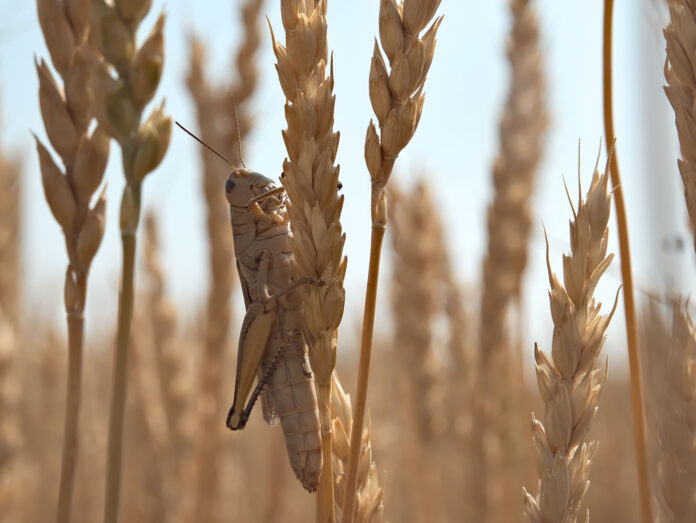The City of Lethbridge is preparing for grasshoppers and foxtails this summer after last year’s drought led to a significant increase in them. The city says because this year is anticipated to have below average precipitation, similar to last, it has identified several mitigation strategies.
These include grasshopper predictions, which were performed in fall of 2021; continuing with pre-emergent spraying for foxtails in the spring and grasshopper monitoring, starting this month. The city says If grasshopper populations increase, it will explore different treatment options, in partnership with Dan Johnson from the University of Lethbridge.
Johnson is a professor of environment and science and says grasshoppers move when there is nothing to eat and thrive in size and number in the heat. Last year gave perfect conditions for the insects to grow.
“Normally in an agricultural situation you would have many species of grasshopper, some of which are attacking the crop or the rangeland another which aren’t,” he says. “This is only one species.”
He provided input for the city’s grasshopper management plan this year and plans to work throughout doing population monitoring and providing treatment recommendations. Though Johnson says the situation is not likely to be as bad as last year, the city says there is potential for high numbers of grasshoppers.
“We know westside neighbourhoods experienced an influx of grasshoppers due to the hot and dry summer, with those adjacent to farmland experiencing the largest volumes. We are certainly aware of the situation and will continue to work towards solutions within our control,” says Blair Richter, general manager of parks and cemeteries.
The city’s civic standing policy committee was provided an update on mitigation strategies at its meeting on June 8.
Coun. Belinda Crowson says the city commends Richter and his team for their proactive work. “We listened to people last year but when the problem arose it was too late for immediate treatment within administration’s control,” she says. “We also continue to encourage residents to bring issues to these SPC meetings to allow these community conversations.”
Foxtail Barley is a type of grass that can grow up to one to two feet tall within the city. It is not a controlled plant species found on the list of provincially regulated plants or the City of Lethbridge bylaw list, however it can be dangerous to pets, according to a city staff report. It says the city will hire 21 new staff to assist with mitigation this summer. Chemical spraying is done by the city and it says residents will be notified when it occurs.
The city encourages residents not to use chemical products on grasshoppers, as they can be toxic in the urban environment. There are no pesticides that are approved for use in residential areas. It also says residents can call 311 when foxtails and grasshoppers are identified.







